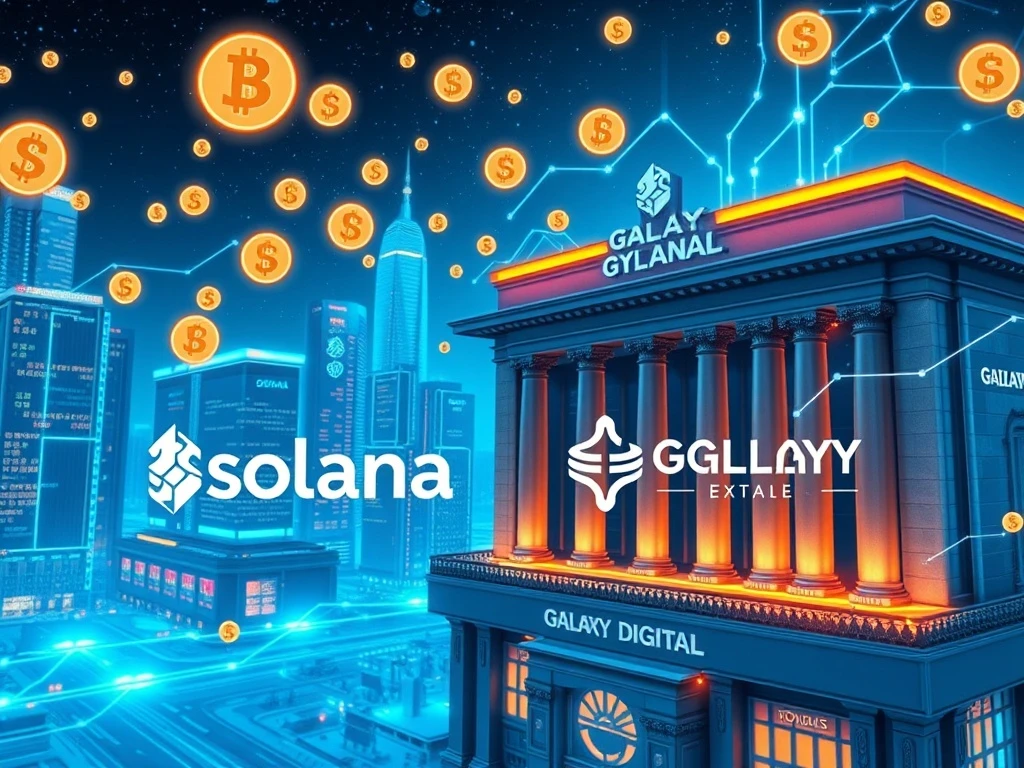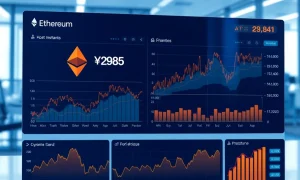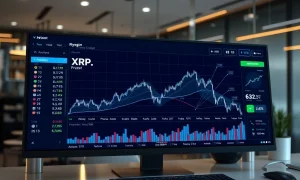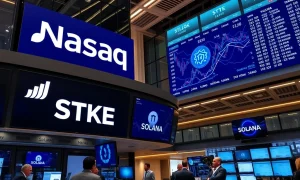In a groundbreaking move that signals the future of financial infrastructure, Galaxy Digital has made history by becoming the first Nasdaq-listed company to tokenize its shares on the Solana blockchain. This revolutionary step bridges traditional equity markets with decentralized technology, creating new opportunities for investors and reshaping how we think about market accessibility.
The New Era of Financial Infrastructure
Galaxy Digital’s September 2025 initiative represents a seismic shift in financial infrastructure. The company tokenized its Class A Common Stock through SEC-registered transfer agent Superstate. Consequently, shareholders can now convert traditional shares into tokenized versions while maintaining full legal and economic rights. This development aligns perfectly with the SEC’s Project Crypto initiative, which modernizes securities frameworks for blockchain integration.
Solana’s Role in Modern Financial Infrastructure
Galaxy’s choice of Solana over Ethereum highlights critical differences in blockchain capabilities. Solana offers unmatched speed, handling 4,000-65,000 transactions per second with near-zero costs. However, Ethereum provides institutional-grade compliance through standards like ERC-1400 and ERC-3643. This strategic decision demonstrates how different blockchain solutions serve varying needs within evolving financial infrastructure.
Key Benefits for Market Participants
The tokenization brings several advantages to market participants:
- 24/7 trading capabilities beyond traditional market hours
- Instant settlement compared to traditional T+2 settlement cycles
- Potential AMM integration for enhanced liquidity pools
- Regulatory compliance through SEC-approved frameworks
Market Impact and Industry Trends
The blockchain financial services market continues rapid expansion, projected to reach $22.46 billion in 2025. Tokenized real-world assets grew an astonishing 300% in 2025 alone. Furthermore, regulatory developments like the OCC’s Interpretive Letter 1184 authorize banks to offer crypto custody services. These factors collectively drive adoption of blockchain-based financial infrastructure across traditional institutions.
Investment Implications and Opportunities
This development creates dual opportunities for different investor types. Traditional investors gain exposure to blockchain-native assets without sacrificing regulatory protection. Crypto-native investors can integrate equities into DeFi ecosystems for yield generation. However, challenges remain including Solana’s centralization risks and regulatory uncertainty around tokenized securities.
Future Outlook for Blockchain Financial Infrastructure
The success of Galaxy’s tokenization experiment could catalyze broader adoption across financial markets. As institutions seek more efficient, transparent, and accessible financial infrastructure, blockchain solutions offer compelling advantages. The convergence of traditional finance with decentralized technology appears inevitable, with Galaxy Digital leading this transformative charge.
Frequently Asked Questions
What does Galaxy Digital’s tokenization mean for shareholders?
Shareholders retain all legal and economic rights while gaining ability to trade tokens 24/7 with instant settlement through blockchain infrastructure.
Why did Galaxy choose Solana over Ethereum?
Solana offers superior transaction speed and lower costs, making it ideal for high-volume applications despite Ethereum’s stronger compliance frameworks.
How does this align with regulatory requirements?
The tokenization uses SEC-registered transfer agent Superstate and complies with Project Crypto initiatives, ensuring regulatory compliance.
Can retail investors participate in tokenized share trading?
Currently limited to KYC-verified investors, though this may expand as regulatory frameworks develop and mature.
What risks accompany tokenized equities?
Risks include blockchain network stability, regulatory changes, and the nascent nature of automated market makers for equity tokens.
How might this impact traditional market infrastructure?
This could pressure traditional systems to adopt faster settlement, extended trading hours, and improved transparency standards.








